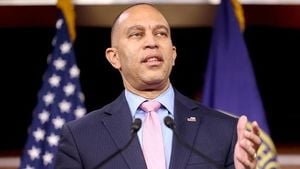Frustrations are mounting among Vietnamese citizens as a wave of unresolved complaints and technical hiccups continue to plague both land management and toll payment systems nationwide. From Ho Chi Minh City to Hanoi, and as far as Phu Tho and Tay Ninh provinces, people find themselves entangled in bureaucratic red tape, inconsistent compensation, and, in the case of the VETC electronic toll collection (ETC) system, a maze of fees and unclear responsibilities.
On August 9, 2025, several households in Ho Chi Minh City submitted fresh petitions regarding land compensation for the Bien Hoa – Vung Tau expressway project, which passes through Tan Hung and Hoa Long communes. According to reports gathered by Ban Bạn đọc, these residents were shocked to discover that compensation rates in the Ba Ria area were significantly lower than those offered in other parts of the city. The discrepancy has left many feeling shortchanged and confused. As one resident put it, "There can't be two different compensation rates for the same project." Despite repeated appeals for a review of the land price determination process, authorities have yet to respond, leaving affected families in limbo.
This isn’t an isolated issue. In Tay Ninh province, Pham Ngoc Nhan from An Ninh commune is seeking clarity on a long-standing dispute over a land use rights transfer contract for plot number 13, originally registered by the People's Committee of Duc Hoa district in Long An province. Nhan is adamant that the authorities must re-examine the case to protect her legitimate interests and prevent further injustice. She told local media, "I hope the authorities will look into this matter to ensure my lawful rights are protected and to avoid prolonged injustice."
Meanwhile, in Can Tho, a land dispute dating back to before 1984 has resurfaced. Nguyen Van Tuong of Tan An ward recounted a saga involving land transfers, compensation payments, and a recent court ruling. After land was handed over for the construction of National Highway 91B in 1984, and subsequent compensation and further land transfers in 2003 and 2008, Tuong’s family believed the matter settled. Yet, in January 2021, the family of the original landholder, Tran Thi Trang, sued Tuong for allegedly encroaching on 225.8 square meters of land. On May 9, 2025, the Can Tho City People’s Court of Appeal ruled against Tuong, ordering him to return the disputed land. Tuong maintains the ruling is flawed, insisting, "After all the land handovers and compensation, there was no land left for us to encroach on."
In Hanoi, Vu Van Thang’s experience with a failed investment further highlights citizens’ struggles with contractual obligations. Thang entered into a capital contribution agreement with Thai Thinh Construction and Investment JSC in November 2013, aiming to secure two kiosks at Kim No market. By April 2014, he had paid the full amount, but the company failed to deliver the kiosks or refund his investment. Instead, the company’s director, Khuc Duy Thanh, agreed to a gold-backed loan contract in July 2014, pledging to repay 181.5 SJC gold taels and monthly interest. Years later, neither the gold nor the interest has been paid. To make matters worse, one kiosk was rented out and ultimately sold to a third party. Thang’s repeated appeals to authorities have fallen on deaf ears, leaving him in financial limbo.
Elsewhere, Nguyen Van Cong of Nam Sach district, Hai Phong, has voiced concerns to the local electricity authority about operational and management issues that have disrupted both his business and the lives of local residents. Cong’s complaint, submitted to the Nam Sach Power Company, urges Vietnam Electricity Group to address these problems in accordance with the law.
In Phu Tho province’s Doan Hung commune, a decades-old land allocation issue continues to fester. Back in 1993, the local government earmarked roadside land along National Highway 2 for the construction of a health station and electricity substation. Residents who paid for the land were promised plots, but only a handful received them. Over 30 years later, many are still waiting, and the government is now encouraging them to accept refunds instead. The affected families are calling for a thorough resolution, saying, "We hope the authorities will address this matter fairly."
Against this backdrop of land disputes and bureaucratic inertia, a separate storm is brewing in the realm of toll payments. The VETC ETC system, once touted as a leap toward modernizing Vietnam’s transport infrastructure, has recently come under fire for a slew of persistent problems. As VOV reported on August 8, 2025, users have encountered significant difficulties topping up their accounts, often being hit with a 10% fee when forced to use staff at BOT stations. The frustration is compounded by overloaded customer service lines and inconsistent information from VETC representatives.
One regular highway user, identified as Mr. T, recounted his ordeal: unable to top up his VETC account through standard banking channels, he reluctantly turned to a BOT Nhon Trach station staff member, only to be charged 30,000 VND for a 500,000 VND top-up. "When I asked why there was a fee and why there were no prior instructions, the staff just dodged the question and went silent," he told VOV. This experience has fueled suspicions that VETC may be creating technical barriers to force cash transactions at stations, allowing for surcharges outside the official system.
VETC’s official response has done little to allay public concerns. In an email to VOV, the company asserted, "We do not charge any fees when customers top up, whether via the toll account or the transport account. If there are any costs incurred, they are due to intermediaries like e-wallets or banks." Yet, in a recorded customer service call, a VETC agent admitted that only linked VETC wallets or bank accounts can be used to top up, and transfers from other banks via customer codes are not allowed. "Currently, that's not permitted," the agent stated plainly.
To make matters worse, the VETC hotline is reportedly overwhelmed, handling up to 10,000 calls daily. Many callers, like Mr. T, find themselves stuck on hold, losing money to dropped calls without ever reaching an agent. One staff member acknowledged, "The hotline is overloaded due to inquiries about Decree 119 and two-level administration." This disconnect between VETC’s public messaging and the reality faced by users has eroded trust in the system’s transparency and accountability.
VETC’s communications manager, Hoang Nhat Mai, has repeatedly insisted that "anyone can top up," but customer service agents have contradicted this, saying that only those with linked bank accounts can do so. The confusion deepened when VETC denied responsibility for cash-collecting staff at BOT Nhon Trach, claiming, "Such staff are not under VETC management," while also promising strict action against unauthorized cash collection. This ambiguity leaves users wondering: who is actually handling their money, and who will be held accountable if things go awry?
Underlying all these issues, both in land management and toll payments, is a common thread: a lack of effective communication, transparency, and timely resolution. Whether it’s a family fighting for fair compensation, an investor seeking justice, or a commuter just trying to pay a toll, the frustration is palpable. As more citizens demand answers, the pressure is mounting on authorities and service providers alike to deliver on promises of modernization, fairness, and customer care. Only time will tell if these calls for change are finally heeded.




